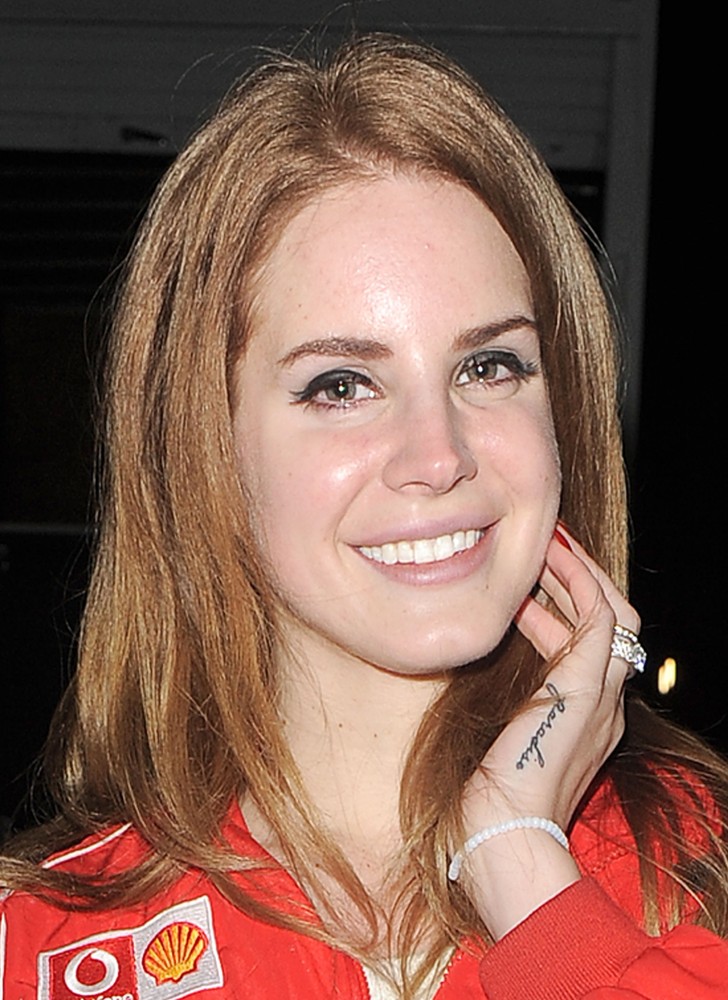


In a statement prior to the release of “Lust for Life,” Del Rey said, “I made my first four albums for me, but this one is for my fans and about where I hope we are all headed.” Her latest releases, “Honeymoon” (2015) and “Lust for Life” (2017), are more exploratory, with the former being her most cinematic and expansive piece to date, and the latter finding Del Rey in a new head space. She earlier revealed that she had been reluctant to release another album after “Born to Die” and “Paradise.” With “Ultraviolence,” Del Rey felt more accessible as both a musician and an artist. In 2014 came “Ultraviolence.” The album, rooted in psychedelic rock and a vibrant guitar sound, was Del Rey’s first concept album, following an atmospheric narrative. Del Rey later told an audience at one of the film’s premiere screenings, “I really just wanted us all to be together so I could try and visually close out my chapter before I release the new record, ‘Ultraviolence.’” In a now-deleted tweet, Del Rey called the film “a farewell project.” Many believed it was a final goodbye to her music career or simply a move to another era. It was with “Tropico” that Del Rey seemed to close out a chapter in her persona. The film features some fan favorites from “Paradise,” using the songs to develop an ultimate Del Rey-esque story, with fallen heroes and a broken and complicated love story with a touch of Californian warmth and sunshine. However, it is not until her later albums that Del Rey fully embodied her music and developed a more robust persona.įrom her late-2012 EP “Paradise” came “Tropico” (2013), a short film written by and starring Del Rey that follows three chapters of the Biblical story of Adam and Eve. The album’s dreamy indie pop sound and Del Rey’s smoky voice help personify a palpably melodramatic entity. Her second album and major label debut “Born to Die” (2012) followed and became her most iconic album, and perhaps one of the biggest albums of the 2010s, while garnering both commercial success and critical divisiveness. Granted, her sound has always been polarizing, especially after a performance on “Saturday Night Live” in 2012 nearly ended her career. Singles “Video Games” and “Blue Jeans” were the melancholy alternative-noir sound that pop music was missing. Del Rey’s unreleased tracks from much of her pre-2010 years can also be found across YouTube.īut it was not until her mainstream breakthrough in 2011 that Del Rey’s current stage name and musical persona became her most successful. “But if you look on YouTube, all 13 tracks are available with millions of views, so it’s not like no one’s heard them,” Del Rey said. Her official debut full-length album, “Lana Del Ray” (2010) was available for purchase on iTunes, but Del Rey told Rolling Stone in 2012 that the album was shelved after two months of release because her label could not fund it.

#Lana del rey unreleased 2017 professional
Beginning in 2005, Del Rey, born Elizabeth Woolridge Grant, released extended plays under a variety of stage names - from May Jailer to Lizzy Grant and Lana Del Ray, a different spelling on her current professional name. With her upcoming sixth album “Norman Fucking Rockwell” on its way, it is worth exploring how Del Rey came to be one of the most individualistic and stylized artists in the music industry today.ĭel Rey’s career beginnings are not stories of success. However, Del Rey has never really made a “three-minute normal pop song,” nor is she a normal pop singer. Are you kidding me? And it’s called “Venice Bitch.’ Like, ‘Why do you do this to us? Can you make a three-minute normal pop song?’” Del Rey told Lowe. “I played it for my managers, and I was like, ‘Yeah, I think this is the single I want to put out.’ And they were like, ‘It’s 10 minutes long. The 10-minute song is the second release from her work with producer Jack Antonoff, whose past credits include Taylor Swift’s “1989” (2014) and “reputation” (2017), as well as Lorde’s “Melodrama” (2017) and St. 18, singer, songwriter and producer Lana Del Rey played her most recent single, “Venice Bitch,” on Zane Lowe’s Beats 1 show on Apple Music.


 0 kommentar(er)
0 kommentar(er)
